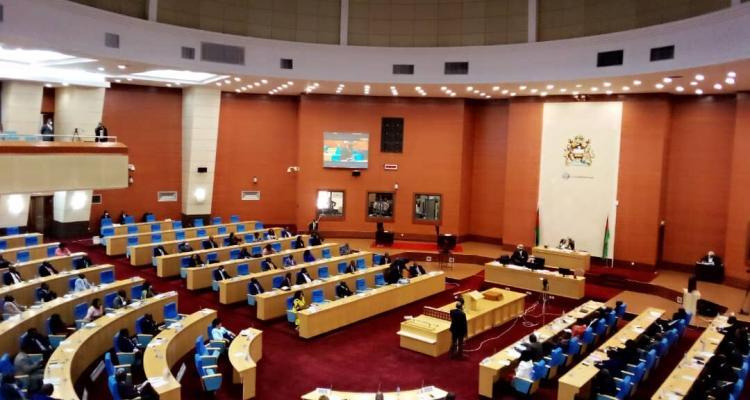
Malawians have demanded the use of local languages in Parliament after one of the legislators expressed himself in broken English.
There was drama in Parliament last week when Nsanje South parliamentarian Ramzan Mahomed struggled to articulate issues in English. Consequently, his fellow lawmakers made fun of him.
The parliamentarian had problems with pronunciation of some words and his sentence construction was also poor.
“On healthy madam speaker, in the Sona the state president also committmetent and eriedicate Malaria in Malawi that very shortly zero malaria campaign,” the MP said.
Some Malawians have argued that it is embarrassing for leaders at that level to communicate in poor English.
There are calls for vernacular language to be used in Parliament so that every legislator can participate in the deliberations.
Hilary Mpata commented on Facebook: “Make vernacular language the mode of communication in parliament. let’s accept that English is not our language.”
While Oyene Mtema said: “The MP had a point but language was his barrier. Bring Chichewa in the house.”
On the contrary, some people believe that English, a colonial language that Malawi failed to shed off, should remain the only official language. This group argues that Malawi has many languages for all to be accommodated.
But another group of scholars have cited South Africa as a good example that adopting several languages is the effective way.
“In addition to using English, Malawi can introduce other local languages like Chichewa, Chitumbuka, Chiyao, Chitonga, Chiyao, Chilhomwe and Chisena. Public offices like Parliament,” wrote Dr Pearson Nkhoma on social media.
Nkhoma, who has made a call on several occasions for the country to make official languages multilingual noted that the common mistake that people make is a belief that a good command of English equates to a nuance understanding of how to deal with issues in this complex world.
He emphasised that a call to introduce different local languages is not a call to introduce one language like Chichewa only or a call for parliament and the country to get rid of English but to acknowledge the diversity the country has.
“I find some strength in the fact that the UN which envelops us all acknowledges the importance of multilingual in a diverse and complex world. If we were to treat Malawi as a global village, therefore, one could see the importance of give people the right to choose a language they can easily communicate complex issues,” he wrote.
“Parliament and other public and policy making offices, for example, can have translators – a job opportunity for University of Malawi language graduates and/or those with a fluent command of multiple languages – just like the way it is in done in Malawian Courts to ensure that communication is as flawless as possible,” he reasoned.
He noted that the status quo forces MPs who “never campaigned using English” to use a language they are unfamiliar with, an approach that reduces a majority to the position of a silent spectator.















Simply retro retrogressive- if we have failed to learn no matter what you bring in parliament want bring any change – we need people who can read and speak English so they learn globally and interact globally.